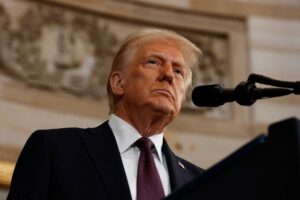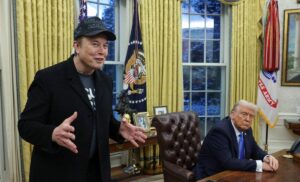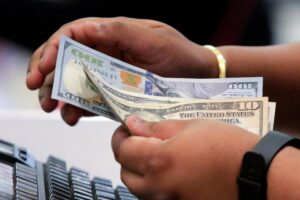
U.S. President Donald Trump issued a strong message to global business leaders during a videoconference address at the World Economic Forum in Davos, Switzerland, urging them to manufacture products in the United States to avoid tariffs and benefit from low tax rates.
“My message to every business in the world is very simple: come make your product in America, and we will give you among the lowest taxes of any nation on earth,” Trump said. “But if you don’t make your product in America… you will have to pay a tariff.”
Trump warned of tariffs in “differing amounts” that could redirect “hundreds of billions, even trillions of dollars” into the U.S. Treasury to bolster the economy and reduce national debt.
Proposed Incentives and Tariffs
The president proposed a 15% corporate tax rate for companies manufacturing in the U.S., subject to Congressional approval. While Trump did not immediately implement the 10% tariff on global imports and the 60% tariff on Chinese goods he mentioned during his campaign, he announced a 25% duty on goods from Canada and Mexico starting February 1, citing illegal immigration and fentanyl smuggling across U.S. borders.
The February 1 deadline was later extended to China, with a potential 10% duty threatened. Trump also indicated the European Union could face similar tariffs.
Criticism of Canada and Mexico
Trump specifically targeted Canada, claiming—erroneously—that its annual trade surplus with the U.S. was $200 billion to $250 billion. According to the U.S. Census Bureau, Canada’s actual goods surplus with the U.S. was $64.3 billion in 2023, largely due to crude oil and petroleum imports.
“We don’t need them to make our cars… We don’t need their lumber… We don’t need their oil and gas,” Trump stated. He even joked that Canada could avoid tariffs by becoming the 51st U.S. state.
New tariffs on Canada and Mexico could unravel decades of duty-free trade established under the North American Free Trade Agreement (NAFTA) and its successor, the United States-Mexico-Canada Agreement (USMCA).
Tough Stance on China
Trump also called for a “level playing field” with China, criticizing the U.S.’s trade deficit with the country, which he inaccurately claimed was $1.1 trillion. Official data shows the goods trade deficit with China was $279.1 billion in 2023, down from a peak of $418.2 billion in 2018.
“We don’t have to make [trade with China] phenomenal,” Trump said. “We have to make it a fair relationship. Right now, it’s not a fair relationship.”
Uncertain Next Steps
Trump provided no specific details on how his administration plans to implement these tariffs, as key economic appointments—including Treasury Secretary nominee Scott Bessent, Commerce Secretary nominee Howard Lutnick, and U.S. Trade Representative nominee Jamieson Greer—await Senate confirmation.
U.S. Senate Majority Leader John Thune indicated a vote on Bessent’s nomination could happen over the weekend, while Lutnick’s confirmation hearing is scheduled for Wednesday.




















Comments are closed for this article!